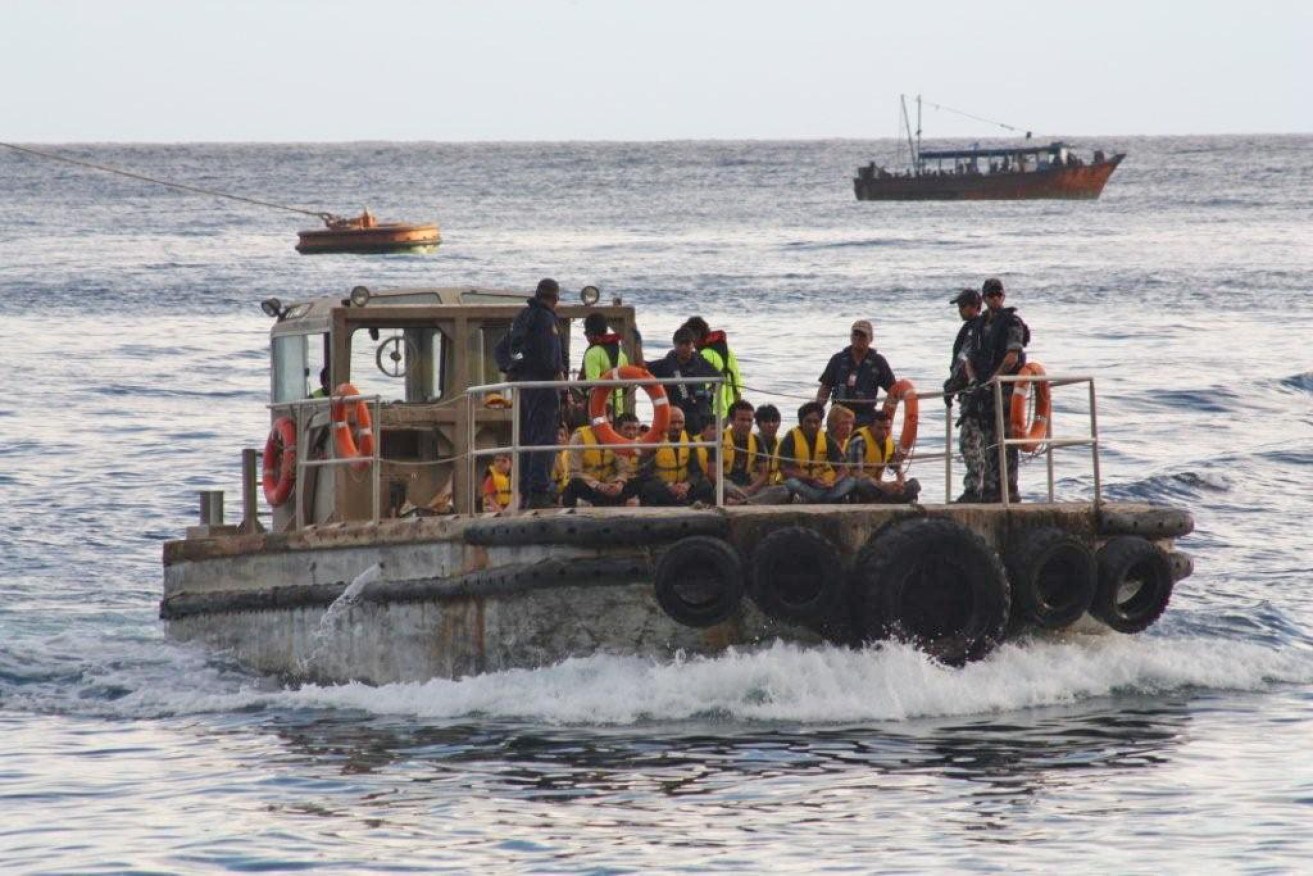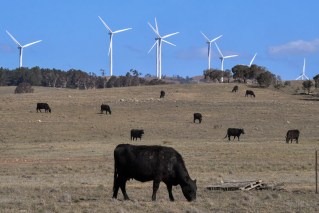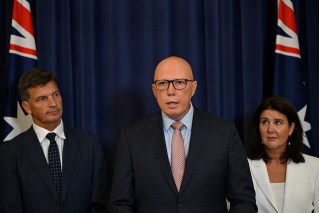Malcolm Turnbull extends the great lie on refugees


Rescued asylum seekers arrive on Christmas Island in 2012. Photo: AAP
The asylum seeker policy announced by the government at the weekend is as wilfully blind to important facts as the Rudd- and Abbott-era policies upon which it builds.
Prime Minister Malcolm Turnbull and Immigration Minister Peter Dutton announced on Sunday that they would give legislative certainty to Kevin Rudd’s 2013 promise that “asylum seekers who come here by boat without a visa will never be settled in Australia”.

Immigration Minister Peter Dutton and Prime Minister Malcolm Turnbull at Sunday’s media conference. Photo: AAP
Mr Turnbull said the move would “send the strongest possible signal to the people smugglers [and] … those who are seeking to persuade persons currently on Nauru and in Manus that the Australian government will change its policy and allow them to settle here”.
Like the previous two PMs, Mr Turnbull defends his asylum seeker policy in the face of international condemnation by referring to the 1200 known deaths at sea between 2009 and 2013, and to his government’s resolve to “break the people smugglers’ business model”.
But like Mr Rudd and Mr Abbott, Mr Turnbull has air-brushed from history the Federal Parliament’s 2012 opportunity to do that by far less expensive and brutal means.
That opportunity hinged on a much better understanding of how people respond to incentives – a notion at the heart of the economic topics this columnist more usually covers.
The ‘incentive’ problem
There are currently around 65 million displaced people around the world, including nine million in the Asia-Pacific region according to the UNHCR.
While they are mostly poor, the government is right that between 2009 and 2013 thousands of families handed over millions of dollars to people smugglers to get to Australia – about 50,000 people made the trip during those years.
The government is also correct to say that those kinds of successes create a “business model” for smugglers.
Where it is wilfully misleading voters, however, is in pretending that the only way to break that model is to maintain the current ‘disincentive’ – that seaborne refugees will never set foot in Australia, and must therefore enter indefinite detention on Nauru and Manus Island.
The government is forced to pretend there is no other solution, because it was the Coalition, supported by the Greens, that voted against a better plan in 2012.
Three ingredients for a better policy
The 2012 ‘Houston plan’ was designed by a highly accomplished and non-partisan expert panel: former chief of the Australian Defence Force Angus Houston, Professor Michael L’Estrange, Director of the National Security College at the ANU, and refugee expert Paris Aristotle, Director of the Victorian Foundation for Survivors of Torture.
Their solution was a compromise: reopen offshore processing facilities in Nauru and Papua New Guinea, raise Australia’s processed refugee intake from 13,750 to 20,000 and, most importantly, pass legislation to restart Labor’s ‘Malaysia solution’ which had previously been shut down by a High Court ruling.

Refugees in detention on Nauru. Photo: ABC
That last point is key. As I wrote at the time, “it is the only policy that attempts to put incentives, and disincentives, in the right places to restore an orderly, legal flow of refugees to Australia”.
It was not good policy, but the alternative has led to self-harm, suicide, murder, and psychological scarring for thousands of people.
The Malaysia solution involved flying 800 refugees to Malaysia for resettlement and accepting, in return, 4000 processed refugees.
While that might sound like a bad deal for the 800 sent to Malaysia, it would have been much better than farcical attempts since to resettle refugees in much poorer Cambodia, Papua New Guinea or Nauru.
It would also have been a dramatically better deal for the 4000 resettled here – and a much better deal in the long run for Australia.
The Malaysia component of the plan was every bit as much a disincentive to families wishing to board boats to Australia – it essentially said “give the smuggler your $5000 to get to Australia, and you’ll still end up in Malaysia”.
It was expected to cost just under $300 million over four years – a cost that would have reduced as the disincentive began to work.
Compare that to the estimated $9.6 billion being spent on the first four years of the Abbott/Turnbull approaches, where the disincentive is not “end up in Malaysia”, but “end up in indefinite detention” – the Houston plan aimed for periods of detention no longer than 45 days.
Regional neighbours, such as Malaysia, Indonesia and Thailand, are constantly calling on Australia to join a regional solution to the refugee crisis, and the Houston plan would have been an important step in that direction.
It was designed as a non-partisan compromise, and as such was introduced into Parliament by independent MP Rob Oakeshott.

Rob Oakeshott’s 2012 bill was a compromise between Labor and Coalition positions.
His private member’s bill aimed to set up a 12-month trial of the plan, and passed the House of Representatives on June 27, 2012.
However it was blocked in the Senate, for the most cynical of political reasons, by the Coalition and the Greens the following day.
The Greens refused to consider any form of offshore processing – even the much more transitory version suggested by the Houston panel.
And the Coalition refused the deal because Malaysia is not a signatory to the UN Refugee Convention – absurd given that places such as war-ravaged Afghanistan and Somalia were.
Australia had a chance to put in a place a cheaper and more humane refugee policy, and to play a role in creating a much-needed regional solution.
It threw that chance away.
That’s why every tightening of the current policy should be greeted with nothing but distain.
This government, like the second Rudd government and the Abbott government, must not be allowed to perpetuate the great lie – that persecuting innocent people is the only way to ‘stop the boats’.
To read more columns by Rob Burgess click here.








